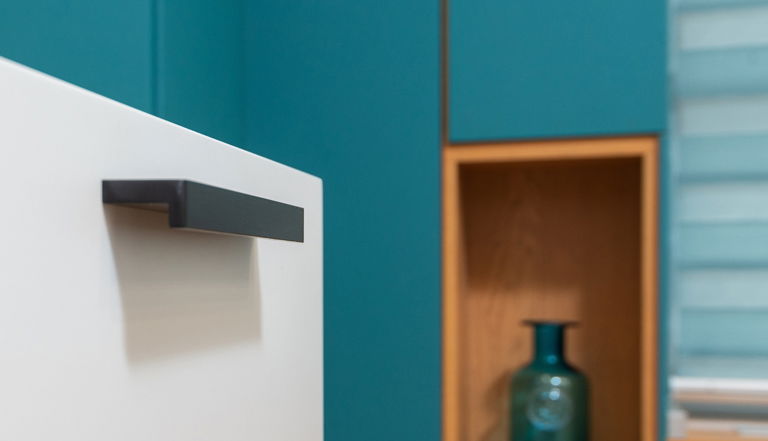For foreign businesses whose trademarks have been the subject of pre-emptive registration in China, it is not uncommon to receive warning letters or even infringement claims from local registered trademark rights holders. This type of situation can be difficult to navigate as an infringement claim against use of an identical or closely identical mark will normally be upheld by Chinese courts or enforcement authorities simply on the basis of the Registration Certificate held by the claimant. The genuine trademark owner could then face an injunction and paying significant damages to the local registered rights holder.
The genuine brand owner could be coerced ino acceding to an onerous settlement arrangement to avoid facing liability for trademark infringement. However, there is the option to apply to invalidate the pre-emptive registration and so contest and hopefully undermine the basis for any infringement claim, particularly if the registered mark is a blatant imitation of the foreign party’s brand.
M&C recently acted for a European kitchen cabinet maker facing this situation. Its mark ARREDO 3 had been pre-emptively registered by a local Chinese furniture manufacturer. In that case, the Beijing Higher People’s Court has recently issued a judgement supporting the CNIPA decision to invalidate the Chinese company’s pre-emptive registration. As a result, our client successfully fended off the hostile infringement lawsuit, and other nationwide enforcement actions raised by the Chinese company against the client’s Chinese distributors.
Facts
Arredo 3 S.r.L. is an Italian kitchen cabinet manufacturer. Its ARREDO 3 trademark has been widely used and promoted since its creation in 1984. ARREDO 3 branded cabinets have been exported to China since 2005 and are supplied via a local distributorship network across more than 20 Chinese cities.
The Italian company registered its mark in Italy in 1996, but did not apply to register the mark in China until 2013.
Instead, Ai Le Duo (Suzhou) Homeware Co., Ltd., a Chinese furniture manufacturer based in Suzhou, had registered rights in the mark “爱乐多 ARREDO” (Chinese characters are a transliteration of the name Arredo) under no. 12625110.

Mark no. 12625110
In June 2018, two local distributors of genuine ARREDO 3 products attended a trade fair in Shanghai. Lawyers acting for the Chinese company issued demand letters to both distributors asserting infringement of its registered rights in the mark “爱乐多 ARREDO” and requiring that the distributors cease use of the infringing mark. The Chinese owner of the registration had similar demand letters to other distributors of ARREDO 3 products in China and also sent warning letters to the distributors’ landlords asking that they terminate leases on the distributors’ business premises. The Chinese company also initiated multiple administrative complaints against distributors of ARREDO 3 cabinets in various cities.
In April 2019, the Chinese owner of the registration filed a trademark infringement lawsuit against one of the Italian company’s local distributors.
Invalidation Action and Related Defensive Actions
To counter the aggressive position of the Chinese registered rights holder, M&C applied on behalf of the Italian company to invalidate the trade mark registration no. 12625110 “爱乐多 ARREDO” on the grounds that the disputed mark was a baltant imitation and pre-emption of the client’s name and trademark which has acquired a reputation in China by virtue of use prior to the filing date of the disputed registration. We also asserted bad faith on the part of Suzhou Arredo, who, based on its prior knowledge of the client’s mark, intended to trade unfairly on our client’s established goodwill and reputation in China.
Following the submission of the invalidation action, M&C liaised with local Admnistrations for Market Regulation to suspend the administratived complaints filed by the Chinese pending the outcome of the invalidation action. A similar suspesion request was submitted to Guangzhou IP Court.
Outcome of the Dispute
The CNIPA issued a favourable decision on the invalidation petition in March 2020. The CNIPA decided to partially invalidate the disputed registration on the basis that it was a blatant pre-emption of our client’s mark for the goods “[2001] showcases [furniture]; furniture; dressing table (furniture); [2012] doors for furniture; [2014] door handles, not of metal”. The CNIPA acknowledged that the disputed mark was confusingly similar to the client’s mark which possessed a degree of originality and had established, by virtue of prior use, a significant earlier reputation in for kitchen cabinets and related products in China.
On the basis of the CNIPA invalidation decision, the Guangzhou IP Court dismissed the Chinese company’s infringement claim in October 2020.
The Chinese company appealed the CNIPA invalidation decision to Beijing IP Court. But the Court upheld the invalidation in April 2021. A further appeal was filed to Beijing Higher People’s Court, but in January 2023 the court of second instance affirmed that the grounds of invalidation were justified and shall be maintained.
Conclusion
If a genuine brand owner is facing an extortionate infringement claim from the holder of a pre-emptive registration, evidence showing use of the registered mark by the other party could substantiate the claim and put the claimant in a more advantageous position. Filing an invalidation action in these circumstances may be too late to remedy the situation and a settlement may then be the preferred or only option. However, pushing back against these types of predatory infringement claim by filing an invalidation action always remains an option as few owners of pre-emptive registrations are as persistent as the one in the case described above and many retreat if met by spirited resistance. M&C remains ready to advise if you or your client should encounter similar difficulties.



